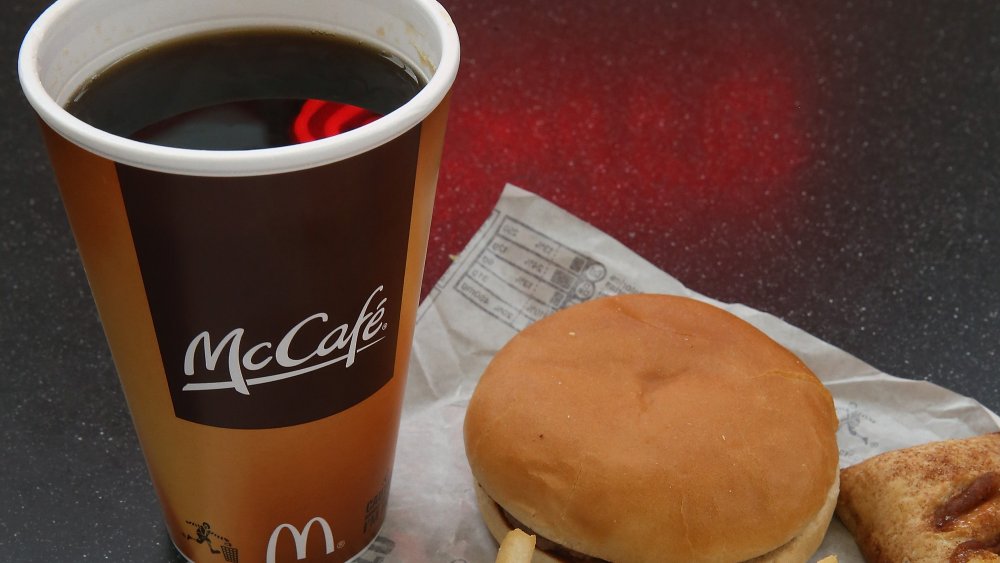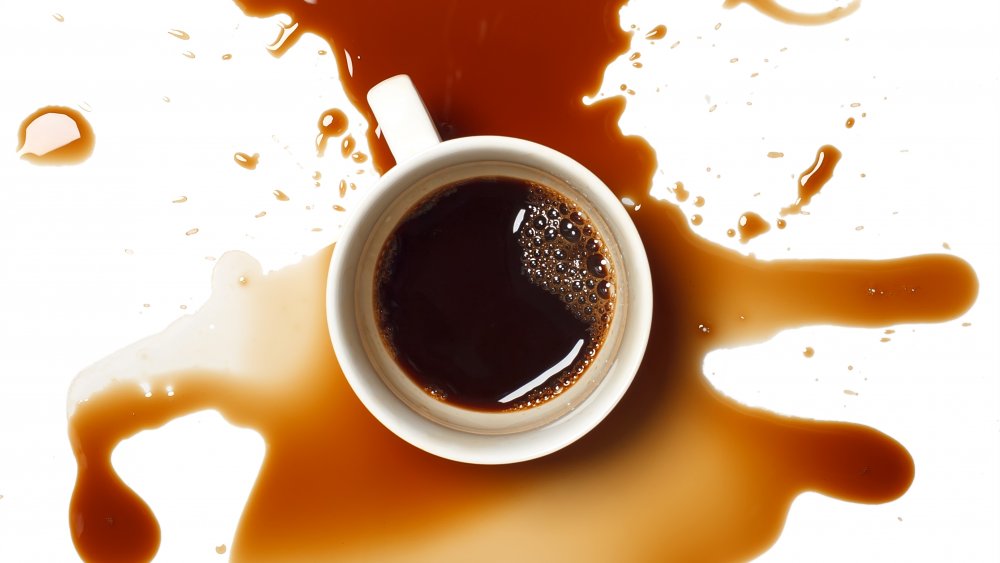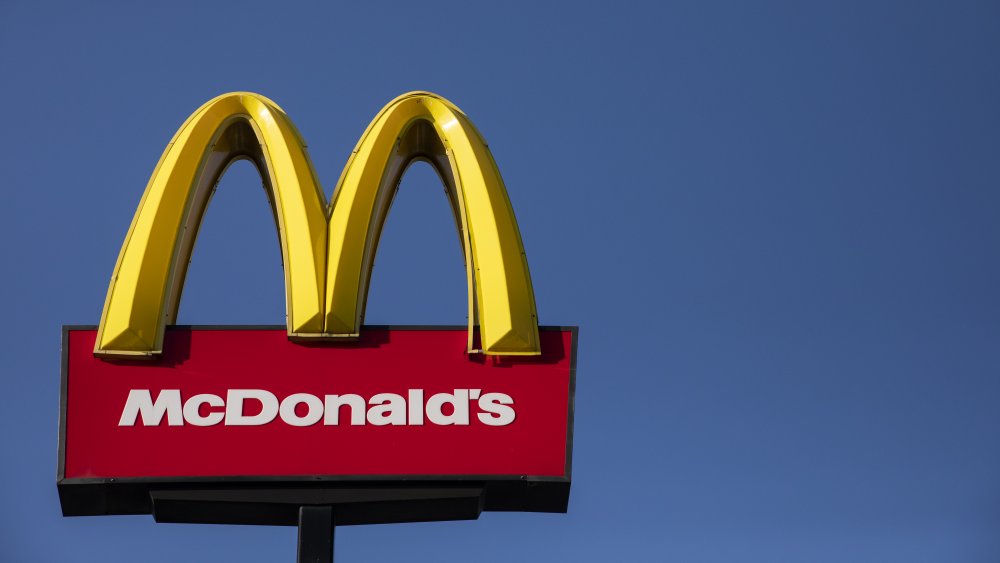The Dark Truth About The Mcdonald's Hot Coffee Lawsuit
You've heard it before. Back in 1992, as most people tell it, a woman ordered a hot coffee at McDonald's, spilled it, and suffered some minor burns — only to turn around, sue the popular chain restaurant, and get rich on something (seemingly) frivolous. In reality? That is the version of the story that the McDonald's PR team has taught you to think, as revealed by Adam Ruins Everything, because those "minor" burns were a life-threatening injury, McDonald's had knowingly endangered people with their coffee temperatures for years, and the victim herself, Stella Liebeck, was a working class hero, not an opportunist.
Spoiler alert: the woman was 100 percent right. Seriously.
Yes, the coffee really was too hot
In 1992, as Vox explains, 79-year-old Stella Liebeck had her grandson take her to McDonald's, where she ordered the now-infamous coffee, and spilled it on her lap. Now, to be clear, Liebeck never blamed McDonald's for her accident, but rather, took issue with the coffee's temperature being insanely hot. How hot? Try 190 degrees Fahrenheit, far above the recommended serving temperature of around 140 degrees. When the coffee spilled, it thoroughly eviscerated the skin in Liebeck's lap, requiring immediate medical attention. If she hadn't received desperate — and expensive — surgery for her third-degree burns, she would've died. According to FindLaw, the elderly woman spent seven days in the hospital, followed by three weeks of care at home.
Liebeck's "frivolous" lawsuit wasn't some effort to strike it rich. She merely asked for McDonald's to pay her medical bills, totaling $20,000. Entirely reasonable, considering McDonald's had nearly killed her, and the evidence showed that the fast food monolith had received over 700 reports of previous customers experiencing similar burns. Instead of paying the bill, though, McDonald's offered a paltry $800. So, Liebeck sued. When the courts awarded her $2.9 million in damages, she decided to settle for around $500,000. So, basically, this was the story of a working class individual successfully standing up to a corporate giant, and Liebeck, who passed away in 2004, should be celebrated as a hero, not vilified.
How did popular culture get this story so horribly wrong?
Now that you've hopefully washed the awful taste of the fake story from your mouth, preferably by drinking coffee of a nice, reasonable temperature, you have to ask: how did this woman's plight get so horrifically warped?
Blame the corporate lawyers. Following Liebeck's case, McDonald's spent years spreading negative propaganda, slanting the public opinion against her. Why? Because they wanted the general public to turn against the idea of corporate lawsuits altogether, thereby fostering an environment wherein the average person mocked and/or groaned about individuals who sue giant corporations for safety violations. Sadly, as the ongoing mockery of Liebeck's case demonstrates, this PR team successfully pulled the wool over people's eyes. As more people learn the truth, though, hopefully Liebeck may one day be widely appreciated for her bravery in the face of corporate power, as she deserves.


